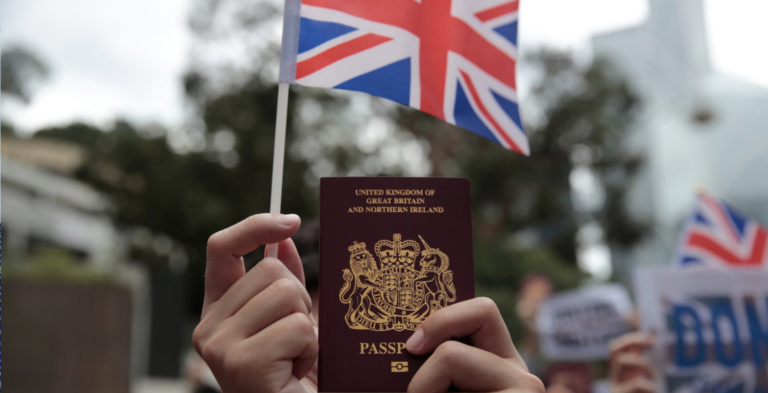OFSI Applications

Financial sanctions are critical tools in the global landscape, ensuring that specific foreign policy and national security objectives are achieved. The UK, like many other countries, has established a regulatory framework to ensure that these sanctions are implemented effectively. Central to this framework is the Office of Financial Sanctions Implementation (OFSI). At Sterling Law, we pride ourselves on providing the necessary legal insights and assistance to navigate this complex terrain.
What is OFSI?
The Office of Financial Sanctions Implementation (OFSI) operates under HM Treasury. Its primary role is to ensure that financial sanctions, imposed either unilaterally by the UK or as part of international obligations, are correctly enforced and adhered to. Financial sanctions can target various subjects, including individuals, entities, or entire countries. They can range from asset freezes and investment bans to restrictions on financial services and markets.
Types of OFSI Licences
OFSI provides different types of licences to cater to varying needs.
General Licences
General Licences allows a broad range of activities that would otherwise be prohibited by financial sanctions. Instead of tailoring permissions to individual situations, general licences apply to multiple entities or persons as long as they meet the criteria set out in the licence. For instance, a general licence might be issued to permit humanitarian activities or certain financial transactions in a sanctioned region. They are usually issued for a limited amount of time.
Various entities who fall within the applicable situations described by the general licences require to follow the conditions specified in that licence. Some of these entities include:
- humanitarian organisations working in sanctioned countries;
- financial institutions processing transactions involving sanctioned territories;
- companies selling non-restricted goods to sanctioned regions.
OFSI does not accept applications for general licences, however issues them as a mechanism to address situations where activities are identified as permissible under specific circumstances. In some cases, general licences are issued to allow for humanitarian activities or to meet legal obligations, which can include sending medical supplies, food, or other essential goods to areas under sanctions.
General licences can also be issued to mitigate unintended consequences caused by sanctions. They are used to alleviate these impacts on innocent parties or sectors that were not the intended targets of the sanctions. Sanctions could also indirectly overwhelm OFSI with licence applications to permit prohibited activities. Thus, OFSI could consider the specific circumstance and issue a general licence to streamline administrative processes.
A recent example of when sanctions have caused unintended consequences and OFSI issued a general licence in response to an unprecedented numbers of licence applications can be read about in link. In this situation, the sweeping and far-reaching sanction imposed relating to Russia and Belarus impacted UK persons who were owed money by Russian and Belarusian Designated Persons (DPs) under contracts agreed to before the designation of those DPs. Thus, OFSI has unintentionally disadvantages UK persons by these financial sanctions, as the UK persons can only receive the payments once they receive an OFSI licence.
In response, OFSI issued General Licence INT/2023/3024200 in respect of prior obligations. With this licence, relevant UK persons are allowed to receive payment from DPs, where they are owed funds under a contract that was signed prior to the designation as DPs (subject to the licence’s terms and conditions being met).
Specific Licences
Specific Licences are tailored to particular persons or entities, these licences grant permissions that circumvent the restrictions imposed by financial sanctions. They are typically issued on a case-by-case basis after a detailed review. For example, where a company needs to make a transaction involving a sanctioned country or DP, detailing their circumstances and reasons for the required exemption.
Specific licences are sought when no general licence applies to particular situation or when the circumstances are unique. The specificity allows for a tailored permission that addresses unique needs or conditions. For instance, a company aiming to do business with a particular sanctioned entity, which doesn’t fall under any general licence criteria, would need to apply for a specific licence.
Licences can generally be obtained where the proposed transactions are for:
- covering expenses such as food, rent and medicines (referred to as basic needs);
- reasonable professional legal fees or reasonable expenses associated with the provision of legal services;
- prior obligations (if the obligation/contract started before the sanction was imposed);
- covering the payment of fees/service charges for routine holding or maintenance of frozen funds or economic resources;
- pre-existing judicial decisions;
- extraordinary expenses, where considered appropriate;
- extraordinary situations, where considered appropriate (only for non-UN listed persons);
- humanitarian assistance, or
- diplomatic missions.
Nevertheless, there are requirements that an applicant must meet in order for the specific licence to be issued. They typically include:
- a clear statement of the reasons for the licence, providing context and justification;
- detailed information on the parties involved, the nature of transactions, or the scope of activities;
- evidence or documentation supporting the application, such as contracts, agreements, or other relevant materials, and
- demonstration that the proposed activity aligns with the policy objectives of the sanctions regime.
Evidently, there are prohibited transactions and activities that OFSI may deny outright if an application for a specific licence is submitted. Each relevant regulation for the financial sanctions provides information on what is prohibited and out of bounds of a specific licence.
Why is an OFSI Licence Necessary?
Obtaining an OFSI licence isn’t merely a formality, as it is a legal requirement, serving several essential functions.
Firstly, the most immediate reason for obtaining an OFSI licence is legal compliance. Financial sanctions, once imposed, carry the weight of law. Engaging in activities prohibited by these sanctions, even inadvertently, can lead to substantial fines, and in certain cases, even imprisonment for responsible individuals. Entities or individuals found in violation might also find their assets frozen, effectively halting their ability to operate or access their resources.
Secondly, an OFSI licence provides clarity in complex sanction regimes. The licences help entities navigate the complexities by specifying permitted activities and offering a framework for operation. Therefore, it allows for operational continuity, ensuring that entity activities are not interrupted due to unforeseen sanctions.
Finally, OFSI licences safeguards an entity’s reputation. The mere perception of associating, even unintentionally, with sanctioned entities can lead to a tarnished reputation, decreasing public trust, and affecting both its current and future operations. There are a multitude of legal and ethical considerations, which, if not considered, can significantly decrease confidence in an entity.
How Sterling Law Can Assist?
Sterling Law possesses expertise at guiding professionals and businesses through the OFSI landscape:
- Expertise: Our seasoned team stays abreast of the ever-evolving sanctions regime, ensuring clients receive informed advice. We offer comprehensive consultations, thorough initial assessments, and provide strategic advice on the best approach to an OFSI application.
- Application Process: From drafting to submission and subsequent follow-ups, we handle the intricate details of the licence application process. We ensure that all required information is accurately presented, accompanied with necessary supporting documents that strengthen the application, and liaise with OFSI to address any queries, clarifications, or concerns that may arise during this stage.
- Post-application Support: We offer continued services of routine examinations to ensure that you are constantly compliant with the conditions set out in your licences. Should the need arise for a licence renewal, we help clients with the process, and ensure that any new stipulations or changes are adhered to.
- Crisis Management: In the unfortunate event of non-compliance or inadvertent breaches, we are prepared to provide rapid responses and advice to mitigate potential legal repercussions. We actively represent our clients in any discussions or negotiations with regulatory bodies, defend their interest and seek optimal resolutions.
- Advisory Services: Beyond applications, we also offer insights on when and why a licence might be needed, helping clients make informed decisions.
While the world of financial sanctions can be challenging to navigate, Sterling Law provides the compass and map to traverse it safely. Whether you’re a professional seeking clarity or a business requiring guidance, our team stands ready to assist. Reach out to us for a detailed consultation on all your OFSI-related needs.















